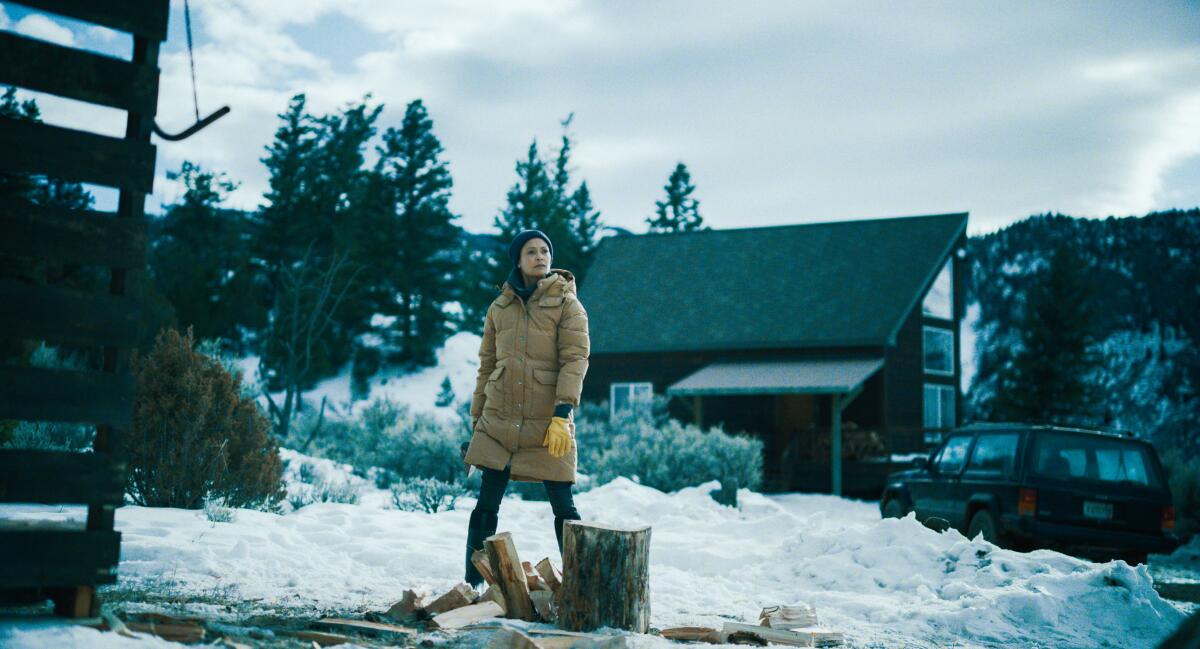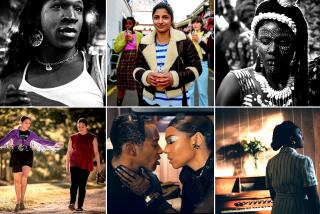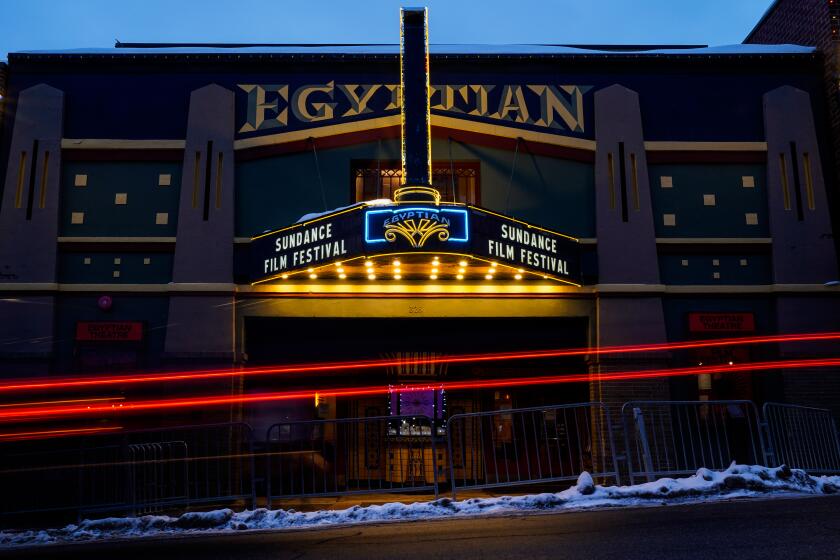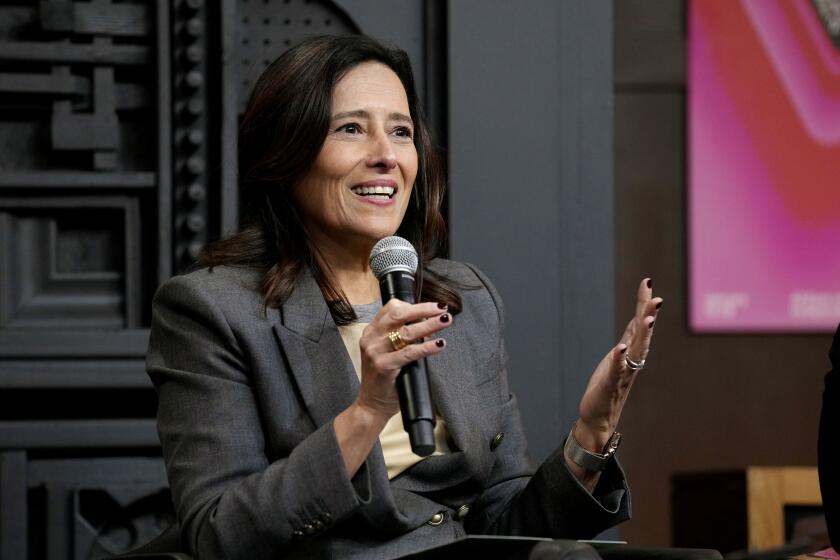‘God’s Country’ is ‘the perfect example of critical race theory,’ says Thandiwe Newton

Spoiler warning: The above video includes a panel discussion of the Sundance Film Festival premiere “God’s Country,” which touches on the ending.
In “God’s County,” Thandiwe Newton plays Sandra Guidry, a college professor who finds a pair of hunters trespassing on her property in a rural corner of the West.
When Sandra firmly but politely asks the men, who are white, to stop trespassing, they respond with hostility. Over the ensuing week, her attempts to resolve the situation peacefully, including seeking help from a hapless police officer, lead nowhere, and tensions escalate dramatically.
Premiering this week at the Sundance Film Festival, “God’s Country” marks the feature debut of writer-director Julian Higgins. A psychologically charged neo-Western, it upends the conventions of the genre by placing the viewer squarely in the shoes of a Black female protagonist trying to defend her homestead from people who view her as an outsider.
Full coverage of the 2022 Sundance Film Festival
The film is based on the short story “Winter Light” by James Lee Burke, which Higgins previously adapted into a short film of the same name. In that story, the frustrated landowner is an aging white male.
After the 2016 election, Higgins and fellow screenwriter Shaye Ogbonna began talking about how to combine their art and activism and use their work “as a way to process what we were feeling” about the country, Higgins said in a virtual L.A. Times Talks @ Sundance panel sponsored by Chase Sapphire.
They decided to collaborate on a feature version of “Winter Light” that would offer a radical new take on the source material: Instead of focusing on a white male protagonist in his 60s, they explore what would happen if a Black woman in her 40s found herself in the same predicament.
“The fact that she is who she is, saying the exact same things that a white man in the story says, changes everything about the subtext of the story. And it changes what we can engage with, as artists. And that’s what we wanted to do: We wanted to sink our teeth into the dynamics that we were feeling in this country. And this is how we decided to do it,” said Higgins, who was joined by Ogbonna, star Thandiwe Newston and producer Miranda Bailey for the The Times panel.

In this way, “God’s Country” becomes a timely parable about race, gender and American identity, without making any explicit references to our current political situation. (Even the setting is never specified, though the film was made in Montana.)
Newton said that the film, by changing the identity of the protagonist in the story, offered “the perfect example of critical race theory. What Julian’s just described is critical race theory: you’re reimagining the past. You’re looking through a different lens, a lens which allows us to be informed about the Black experience.”
Higgins and Ogbonna “specifically put a critical race theory lens onto this story, and look what the results are,” she said. “It’s fascinating, it’s disturbing, it’s provocative. And I think, a truly authentic experience.”
Newton offered additional thoughts on critical race theory, the academic framework that has become a right-wing political bogeyman over the last year. “People who want to get rid of critical race theory really don’t know, actually, what they’re talking about,” she said, saying that CRT is merely “highlighting what’s absent from history. Which, if you’re talking about a whole group of people who have been responsible for the wealth of the United States, that’s a big absence, isn’t it?”
Production on “God’s Country” was put on hold in March 2020 because of the COVD-19 pandemic, and resumed almost precisely a year later. This period also saw racial justice protests sparked by the killing of George Floyd and the insurrection at the Capitol — events that drove home the themes of the film and make its violent climax feel eerily familiar.
“As a Black man, all of the stuff that I’m seeing is not new to me. I’ve seen it before. It’s just on a grander scale,” said Ogbonna. “That’s why this film feels so relevant, because a lot of that was baked into the story from my own personal experiences.”
“When these things were happening [in the news],” Higgins added, “it was not surprising so much as kind of an affirmation that we were talking about something that was real.”
More to Read
Only good movies
Get the Indie Focus newsletter, Mark Olsen's weekly guide to the world of cinema.
You may occasionally receive promotional content from the Los Angeles Times.











